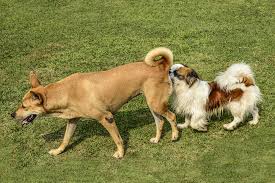
Is it OK to feed my dog sardines everyday? Simply adding a few sardines to your dog’s regular meals once a week can help develop muscles and other connective tissue, boost their immune system, increase dental health, and protect against kidney disease. They’ll also keep them looking dapper, as Omega-3s help fur stay nice and soft. Small fish, big benefits.
Are canned sardines healthy for dogs? Yes, dogs can eat sardines. The oily fish has anti-inflammatory properties and offers vitamins and nutrients to boost your dog’s health and immune system. You can add sardines to your dog’s diet to help introduce healthy fish oils and provide an additional protein source for your furry friend.
What type of sardines are good for dogs? The best canned sardines to give to your dog are the ones in water, with no salt added, or ones that are in natural oils such as olive oil or coconut oil. Even better if you have fresh sardines! Sardines are soft-boned fish and so you can feed them whole to your dog.
Can sardines make dogs sick? Any food can make a dog sick if they eat too much, and sardines are no different. If your dog eats too many sardines, the high fat and salt content can cause gastrointestinal problems like vomiting and diarrhoea, and they might lead to more serious issues like pancreatitis or sodium poisoning.